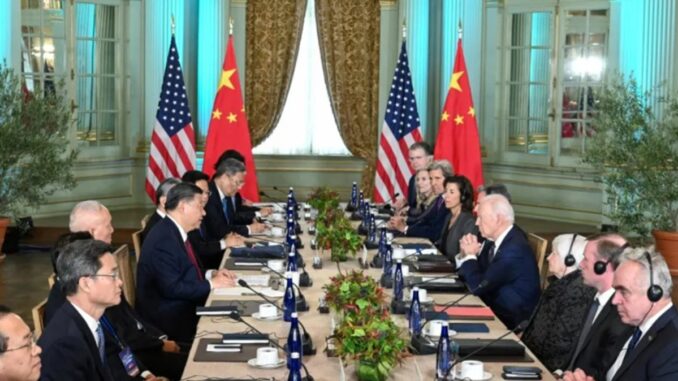
In a surprising turn of events, China sent a substantial military presence towards Taiwan, including 33 aircraft and six naval vessels, raising concerns. This move coincided with a low-key meeting between U.S. national security adviser Jake Sullivan and China’s Foreign Minister Wang Yi, complicating efforts to improve relations.
Struggling for Common Ground
As the U.S. and China work to rebuild relations, the military posturing adds strain. Despite efforts to cooperate, the deployment of Chinese forces may undermine progress. Sullivan and Wang aimed to address issues like the fentanyl crisis through a collaborative “Counternarcotics Working Group,” but the military actions cast a shadow on these diplomatic endeavors.
Taiwan’s Role in the Crossfire
The long-standing disagreement over Taiwan further complicates the delicate dance between the U.S. and China. While the U.S. insists on maintaining Taiwan’s self-governing status, China sees it as a part of its territory. The recent election of Lai Ching-te, a supporter of Taiwan’s current status quo, adds another layer of complexity to an already intricate situation.
Against the backdrop of discussions about reopening military-to-military communications and addressing shared concerns about artificial intelligence, China’s military move highlights the ongoing struggle to find common ground. Sullivan emphasized the U.S. stance of competition without seeking conflict, but the situation with Taiwan remains a sticking point.
As tensions rise during this “period of higher tension,” the potential repercussions for regional stability come into focus. The world watches closely as diplomatic efforts navigate the challenges posed by China’s military maneuvers, reminding us of the delicate balance required in maintaining global peace and cooperation.
